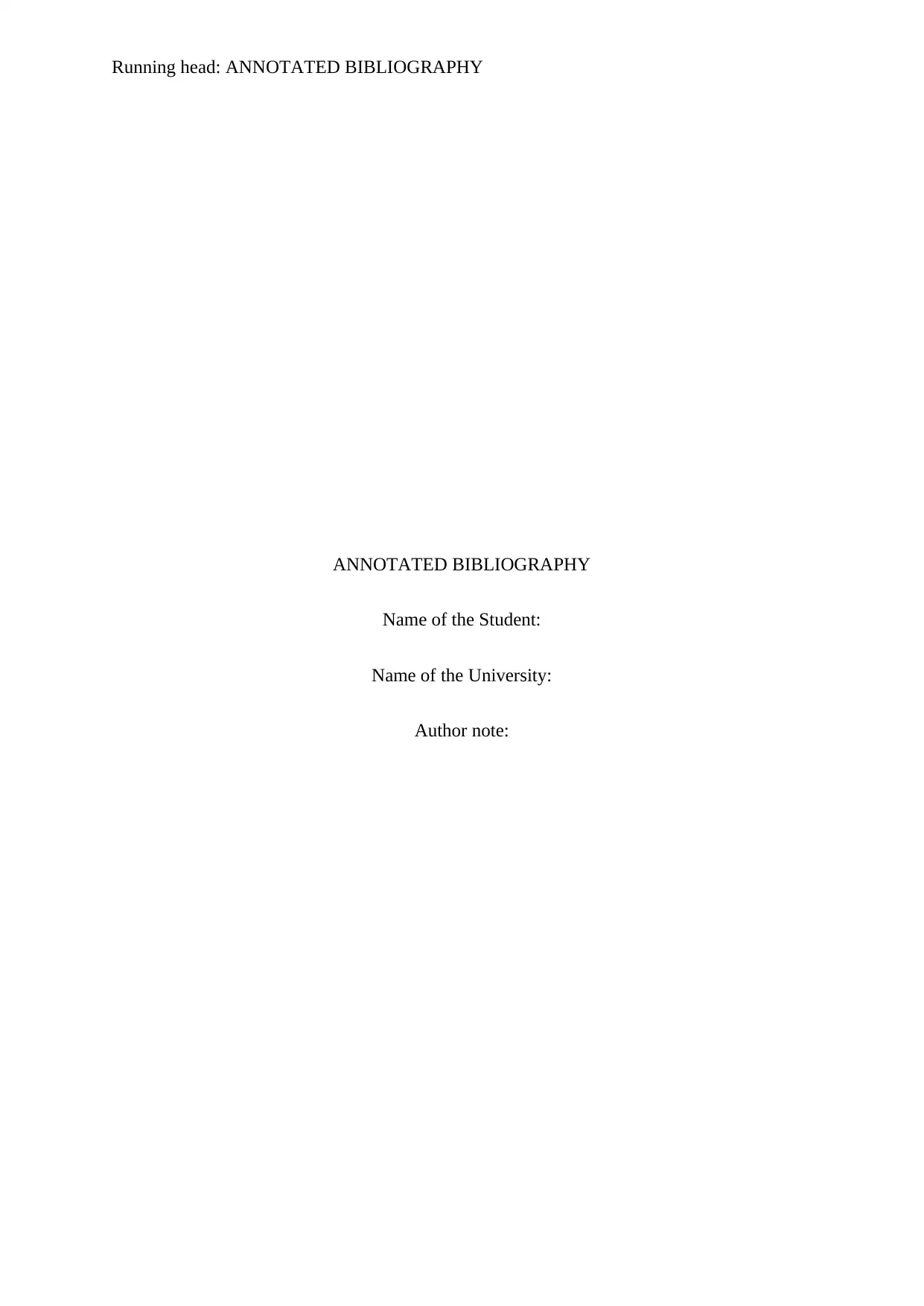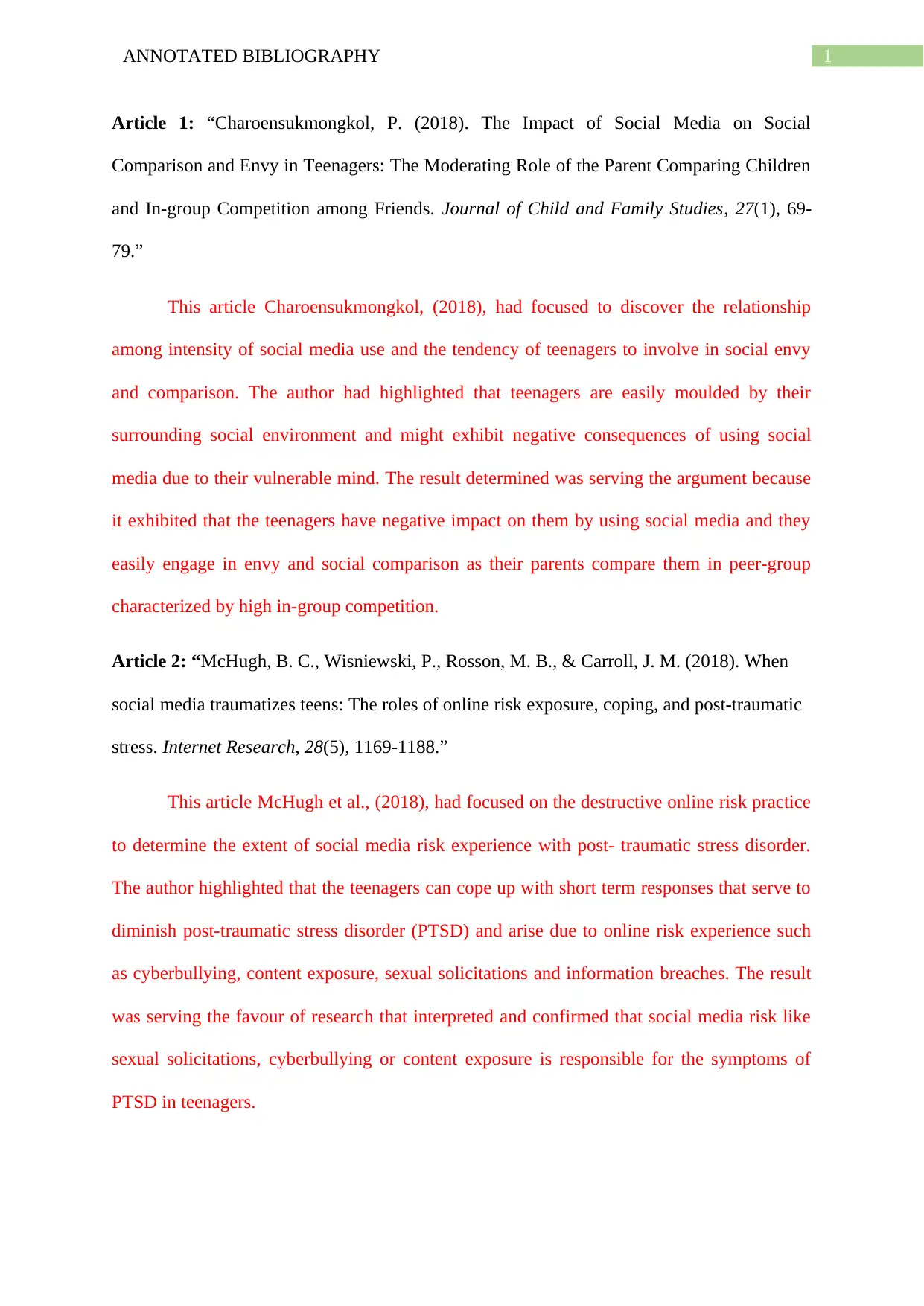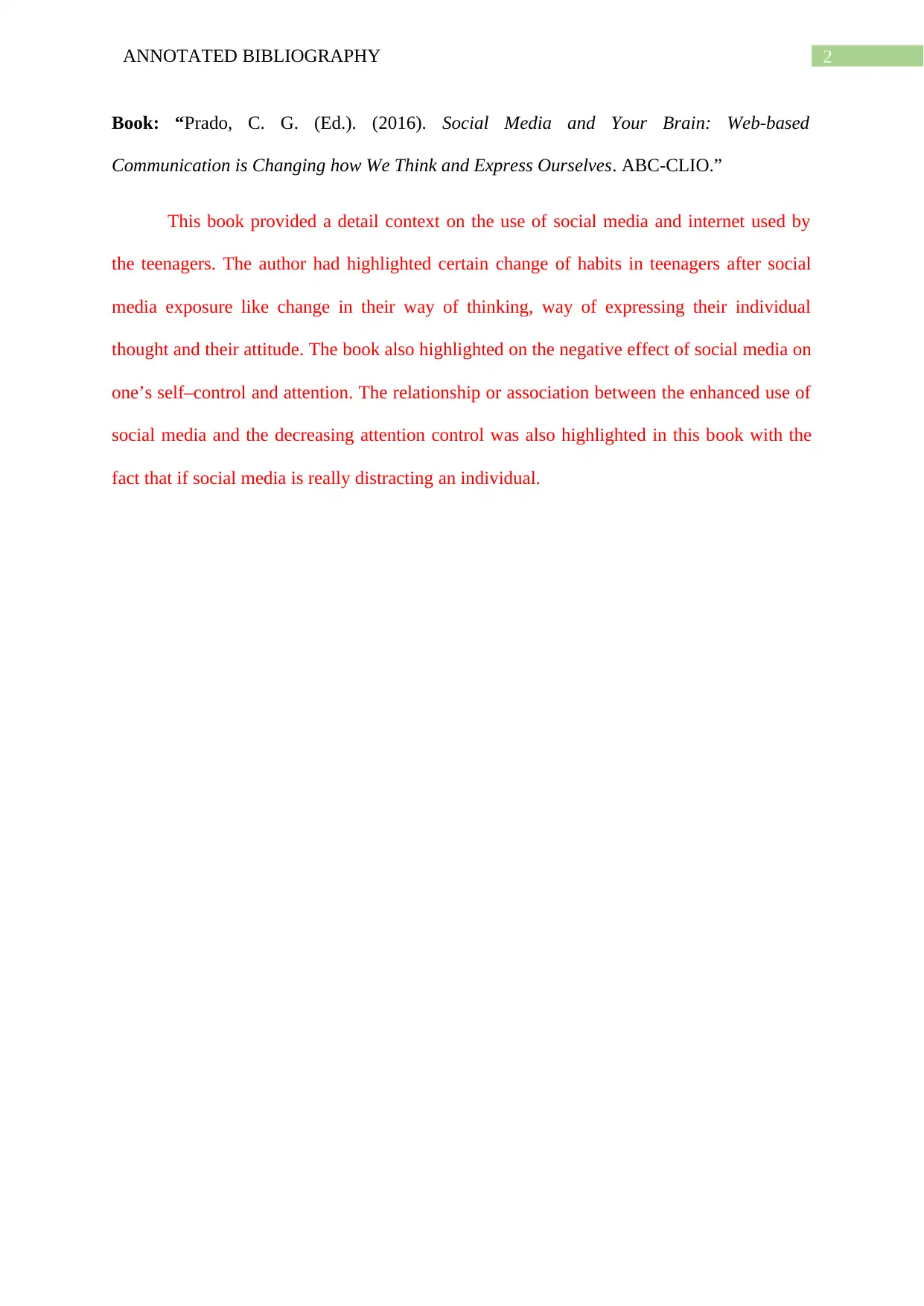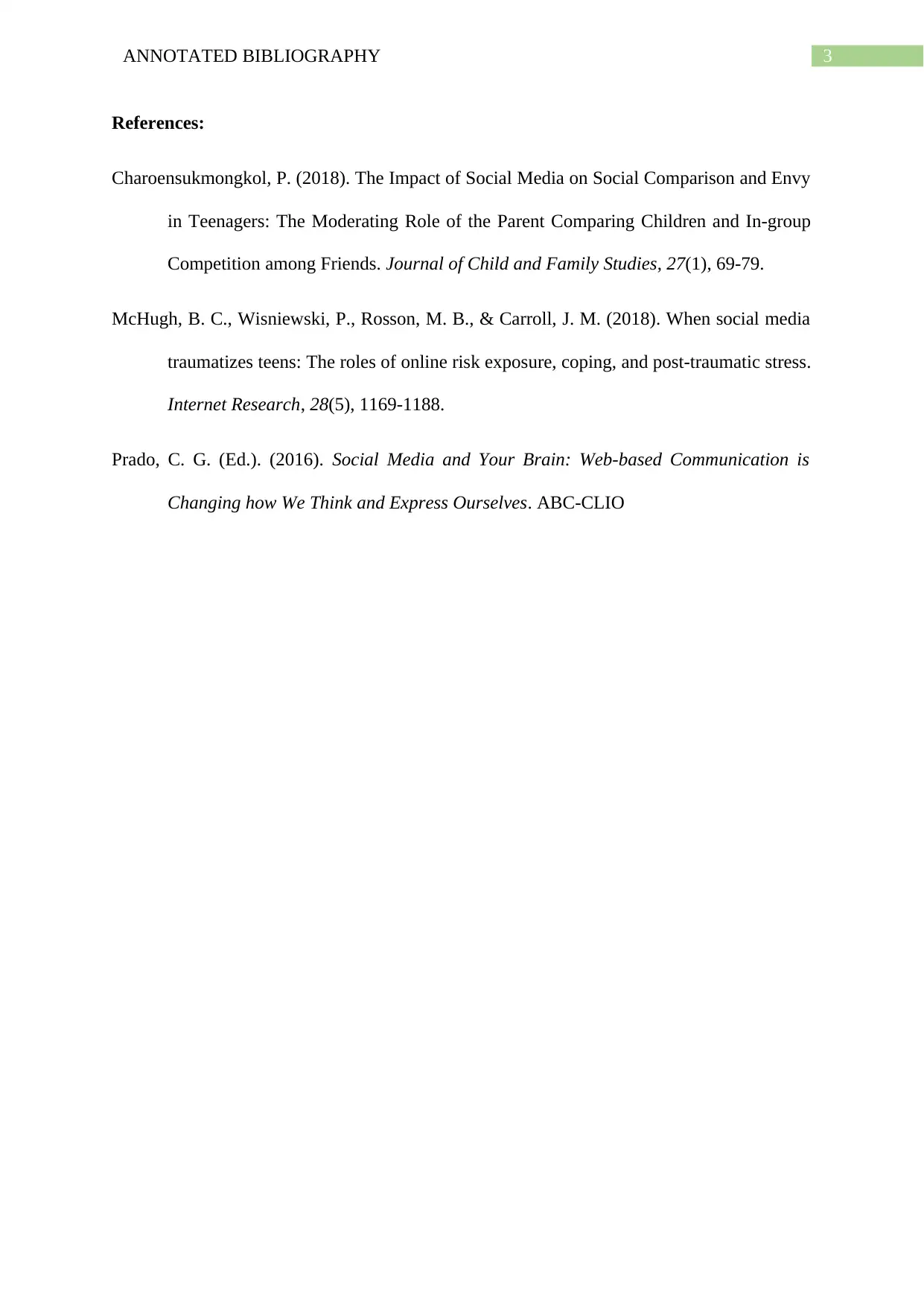Annotated Bibliography: Psychology of Social Media and Teenagers
VerifiedAdded on 2023/02/01
|4
|626
|23
Annotated Bibliography
AI Summary
This annotated bibliography provides a detailed overview of the psychological effects of social media on teenagers. It includes three sources: an article by Charoensukmongkol (2018) examining the relationship between social media use, social comparison, and envy; an article by McHugh et al. (2018) investigating the link between online risk exposure, coping mechanisms, and post-traumatic stress disorder; and a book edited by Prado (2016) exploring how social media changes teenagers' thinking, expression, and attention. Each entry summarizes the source's key findings and arguments, offering valuable insights into the complex relationship between social media and adolescent mental health. This resource is designed to help students understand the current research and issues in this important field. The bibliography helps in understanding how social media can impact teenagers, including its effects on social comparison, mental health, and overall well-being.
1 out of 4





![[object Object]](/_next/static/media/star-bottom.7253800d.svg)